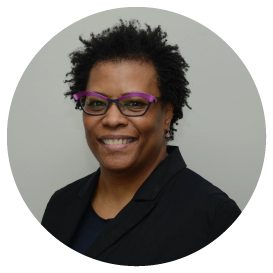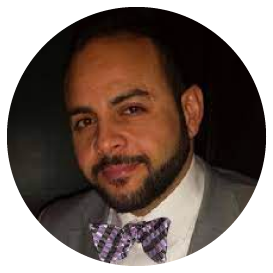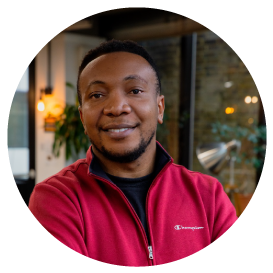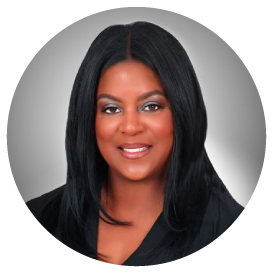The Medical Alley Association recently sat down with the participants of the gBETA Medtech Black Founders Accelerator to hear what led them to found their companies, how they balance startup life with their personal lives, and why they view Medical Alley as the best place to start and grow their company.
gBETA Medtech is a program of UEL and gener8tor. gBETA Medtech’s founding sponsor is Boston Scientific and the cohort receives mentorship support from Mayo Clinic, University of Minnesota and Medical Alley Association. UEL and gener8tor also receive support through a cooperative agreement with BARDA DRIVe, under Contract No. IDSEP190054.
gBETA Medtech works exclusively with startups focused on healthcare. This includes healthcare products for diagnosing, treating and/or monitoring diseases or medical conditions including devices, software, biological technology, and healthcare services, as well as technology or process innovations that could serve any component of the supply chain.
The following founders are part of the Black Founder Accelerator – Fall 2021 Cohort, whose virtual pitch night takes place on Tuesday, December 14 from 4:00 – 6:00 PM EST. You can learn more and RSVP here.

Wendy Slone, bTECH
Tell us a bit about yourself.
My background is in research, as a former laboratory assistant at the Veterans Administration in Cleveland, and biology, from my time spent with the biology department at Cleveland State University. After watching my mom lose both of her legs due to complications from diabetic foot ulcers (DFU), I spent the past three years developing the Halcyon SMART Patch to aid in healing DFU and restoring tissue strength.
Give us your company’s elevator pitch.
bTECH’s disruptive wound care technology prevents lower extremity amputations from chronic non-healing wounds. bTECH’s patent-pending Halcyon SMART Patch (HSP) uses far infrared wavelengths beneath the surface of the skin to promote rapid tissue healing and strengthening.
What are the big milestones to come in the next few years for your startup?
Our next big milestones include building a fully- functional version of our current prototype, which can be used for clinical trials, and then raising capital for a fully-functional prototype and clinical trials.
How do you balance leading a startup with your everyday life?
Prioritization is the key to leading a successful startup and maintaining a balanced lifestyle with family and friends. This means setting parameters around work hours that do not bleed over into time for family and resting. If I am too tired and do not have time to recharge, I am not productive for bTECH or family. I have to make sure I take time to eat properly, rest, and recharge by spending time with family and friends to be most productive.
What’s one thing people get wrong about startup life?
Giving up easily when things do not move quickly within the first few years of founding the business. Real growth business like bTECH take years to build. I have learned you have to have patience and be very persistent. Don’t give up!
What is the best advice you have received in your career? What is the worst?
The best advice I received was “Don’t take every “no” personally. For every “no” there is eventually going to be a “yes!” The worst advice I have ever received was to give up and quit.
What is one personal goal for the upcoming year?
Raising capital for bTECH.
How do you relax / decompress?
Talking with family and friends. They help keep me grounded and focused.
What do you enjoy most about the Medical Alley community?
Access to global health care industry leaders and researchers who are shapeing current and future innovations in health care!

Wessam Sonbol, Delve Health
Tell us a bit about yourself.
With more than 20 years in clinical research tech, I developed tctmd.com and Global View (one of the largest post-marketing solutions for medical devices), which was acquired by PPD.
Give us your company’s elevator pitch.
Delve Health is on a mission to reduce clinical trial costs and bring drugs and devices to market faster. We do this by bringing clinical trials to patient homes, increasing patient diversity, improving data compliance and accuracy.
What led you to found your startup?
My mother was diagnosed with cancer in 2012, and a clinical trial was her only option. It was difficult finding the right clinical trial, and once she was accepted into one, the manual intervention and the bi-weekly drive to Mayo was painful and exhausting. This led to thinking of why not find ways to help other patients find the trials that best fit their needs, and make it accessible to a much broader audience than those limited by just research clinical sites.
What are the big milestones to come in the next few years for your startup?
Raise $3M to scale my company, improve our AI algorithms to improve patient experience, enhance our analytics solutions and partner integration, and implement a robust patient monitoring solution to help clinical research monitors truly conduct remote study monitoring.
How do you balance leading a startup with your everyday life?
I am on a mission to help save lives, and this keeps me going. I have three kids and a wife that have been very supportive. I start my day at 6:00 AM, finish by 5:00 PM, then occasionally pick-up again at night after the kids are off to sleep. I believe it is incredibly important to take breaks during weekends and holidays to re-fuel.
What’s one thing people get wrong about startup life?
Everyone wants to get onboard when everything is working. This is not usually how it works. You only succeed if you have dedicated people that share the same vision and are in it when nothing is working. Only then can you really make something beautiful work.
What is the best advice you have received in your career?
The best advice I’ve received is to listen. If you’re in a situation and you don’t know what to say, ask a question to clarify. The struggles we go through are all learning experiences, not failures.
What is one personal goal for the upcoming year?
Double my team size and to double our revenue.
How do you relax / decompress?
I turn off my phone and do something outside of the house, whether I go for walks, build something around my house, or something else entirely. Turning off my phone and enjoying the moment is key.
What do you enjoy most about the Medical Alley community?
A community of supporting innovaters.

Jossy Onwude, Bold Health
Tell us a bit about yourself.
I am the co-founder and chief product and medical officer at Bold Health. I am a medical doctor, a specialist level Fellow of the Australasian College of Digital health and a serial entrepreneur with over 10 years in product leadership. To date, I have co-founded four digital health startups, with one successful exit. I have a particular knack for developing digital health solutions and, having realised how inaccessible traditional treatments can be, I understand the value of diversity in producing inclusive technologies.
Give us your company’s elevator pitch.
Bold Health delivers virtual-first integrative care to the 250M people in the US who suffer from Gastrointestinal (GI) conditions and account for an annual claims spend of $136B. Bold Health’s virtual care platform offers access to a multidisciplinary team of GI care providers and disease specific digital therapeutic programs.
What led you to found your startup?
Bold Health was founded by a doctor and a patient team. A doctor who was frustrated by the care offered by the traditional medical system to GI patients and saw the need for a more comprehensive approach.Together with a patient who had personal experience with GI issues and achieved symptom relief through an holistic approach.
What are the big milestones to come in the next few years for your startup?
Our next big milestone is a complete US move. That means finalising our Uk to US move, Getting more US enterprise clients and launching our services direct to consumers in four US states.
How do you balance leading a startup with your everyday life?
Leading a digital health startup is not easy. My strategy is to make room for my partner, family and friends while prioritizing business needs. It’s also good to find time to relax.
What’s one thing people get wrong about startup life?
People sometimes focus on the product and don’t spend enough time thinking about distribution which is key to having a successful startup.
What is the best advice you have received in your career? What is the worst?
Great things take time and you have to keep going no matter what. Worst? listened to some people who haven’t been through the journey but play a role in the startup community.
What is one personal goal for the upcoming year?
I want to get back into playing football (soccer).
How do you relax / decompress?
Spending time with my family, watching very good TV series, and listening to Afrobeats music.
What do you enjoy most about the Medical Alley community?
I love the focus on innovation within healthcare. I find the support offered by the community to be invaluable!

Veronica Berry, TruDiary
Tell us a bit about yourself.
As the founder and CEO of my company, TruDiary, I have over 15 years of sales and marketing experience to hospitals and pharmaceutical companies, such as Wyeth pharma and Phoebe Putnam hospital in Georgia. I received a B.S. from the University of Nebraska and a M.P.A. from Clark Atlanta University. I hold a patent for a feminine hygiene product for women and am a Google for Startups Black Founders Fund Award Recipient.
Give us your company’s elevator pitch.
TruDiary provides culturally relevant value-based care to Black and Brown maternal patients in underserved communities, ultimately improving the quality of life for these patients and improving whole person care delivery for Obstetrics professionals. TruDiary’s Social Determinants of Health as a service platform eliminates barriers to quality prenatal care by connecting patients to the right doctor, offering inclusive educational content, and providing (SDOH) services such as food security, mental health, lactation services, and transportation.
What led you to found your startup?
When I became pregnant, I experienced severe pregnancy complications. It was an uncertain time for myself and my unborn child. I felt alone, unsupported, and I didn’t know where to get the answers I was seeking. When my son was born, the doctors said he would experience learning disabilities when he became of school age, which he did. Unfortunately, the teachers dealt with my son by leaving his desk in the hallway, at which point I decided that I did not want another mom to experience what I had.
What are the big milestones to come in the next few years for your startup?
Partnering with payers (regional and national), raising a series A, and commercialization.
How do you balance leading a startup with your everyday life?
I practice self-care, making my personal well-being a priority.
What’s one thing people get wrong about startup life?
That everyone will like your idea.
What is the best advice you have received in your career? What is the worst?
The best advice I received was to find a mentor in your space early on. The worst advice was to only worry about your opinion. No one else’s opinion matters because it’s your company.
What is one personal goal for the upcoming year?
Next year, I would love to visit Dubai.
How do you relax / decompress?
I love to listen to music.
What do you enjoy most about the Medical Alley community?
I really enjoy the advocacy and resources you can’t find anywhere else.
